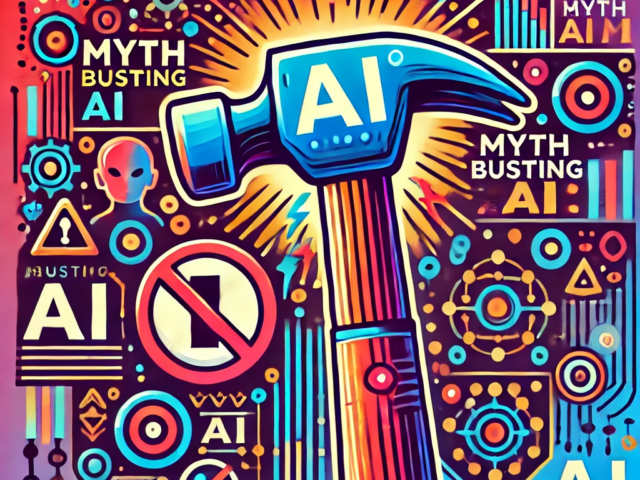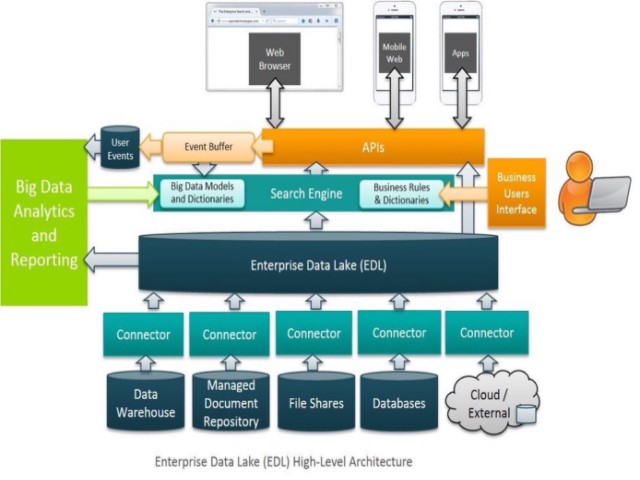
What Every Firm Needs to Know About Artificial Intelligence
- Unlocking Value Creation: AI can drive significant value across companies. From optimizing operations and enhancing customer experiences to uncovering new revenue streams, the potential for AI to boost growth and efficiency is immense.
- Data-Driven Decision Making: AI leverages vast amounts of data to provide actionable insights. Firms can make more informed decisions, improve processes, and predict market trends with greater accuracy.
- Operational Efficiency: AI-powered automation can streamline back-office operations, reducing costs and improving productivity. Businesses can benefit from automated processes in departments such as finance, HR, and supply chain management.
- Risk Management: AI helps identify and mitigate risks by analyzing patterns and predicting potential issues before they arise.
- Personalized Marketing: AI enables hyper-personalized marketing strategies, driving better customer engagement and higher conversion rates. Organizations can leverage AI to create tailored customer experiences to drive growth and improve ROI.
- Innovation and Competitive Edge: Embracing AI fosters a culture of innovation, enabling companies to stay ahead of the competition. Early adoption of AI technologies can lead to disruptive business models and sustained competitive advantages.
- Talent and Skill Development: Investing in AI means investing in people. Businesses should prioritize upskilling their teams to harness the full potential of AI. Building a robust AI talent pipeline is crucial for long-term success.
- Ethical Considerations and Compliance: As AI usage grows, so do ethical considerations and regulatory requirements. Firms must ensure that AI implementations are transparent, fair, and compliant with relevant laws and guidelines.
At Destiny, we are committed to helping organizations navigate the complexities of artificial intelligence. Reach out today to set up a preliminary call to explore how AI can unlock new opportunities for your business.
Debunking AI Myths and Navigating Pitfalls
As AI continues to revolutionize industries, firms are increasingly exploring its potential to drive value and innovation. However, there are several myths and pitfalls that can hinder successful AI adoption. Here’s what you need to know:
Common Myths about AI
Myth 1: AI replaces human decision-making.
Reality: AI is a powerful tool that augments human intelligence, providing valuable insights and recommendations. Human judgment and expertise, however, remain crucial for strategic decisions.
Myth 2: AI implementation is quick and easy.
Reality: Effective AI deployment requires careful planning, quality data, and integration with existing systems. It is a journey that involves ongoing refinement and adaptation.
Myth 3: AI is only for tech-savvy firms.
Reality: AI is accessible to organizations of all sizes and sectors. With the right strategy and support, any firm can leverage AI to enhance its operations and performance.
Myth 4: AI guarantees immediate ROI.
Reality: While AI has the potential for significant returns, it often takes time to see tangible results. Patience and a long-term perspective are essential to realize its full benefits.
Key Pitfalls to Avoid
- Data Quality and Availability: AI uses high-quality data to function effectively. Only complete or accurate data can lead to good insights. Firms must invest in robust data management practices to ensure reliable AI outcomes.
- Overlooking Ethical Considerations: Ignoring the ethical implications of AI can lead to biases and compliance issues. Implementing AI responsibly is crucial, as well as ensuring transparency, fairness, and adherence to regulatory standards.
- Underestimating Change Management: AI adoption can disrupt existing processes and workflows. Successful implementation requires the involvement of all stakeholders, effectively managing change, and fostering a culture of innovation and adaptability.
- Lack of Expertise and Talent: AI projects demand specialized skills and knowledge. Firms must invest in hiring or upskilling talent to navigate the complexities of AI technology to maximize its potential.
- Ignoring Scalability: AI solutions should be scalable to accommodate future growth. Firms must ensure its AI strategies are flexible and capable of evolving with the business landscape and technological advancements.
- Misaligned Expectations: Setting realistic expectations is essential. Overhyping AI capabilities can lead to disappointment. Clear, achievable goals and continuous monitoring are key to managing expectations and achieving success.
Embrace AI with Confidence
At Destiny, we are dedicated to helping firms harness AI effectively, avoiding common pitfalls and debunking myths. Contact us today to learn how we can support your AI journey and help your business drive sustainable growth.


Unpacking the Myths of Off-the-Shelf AI Models and How to Use Them Properly
As AI continues to make waves across industries, a growing number of businesses are turning to off-the-shelf AI models for quick and easy solutions. Myths surrounding these models, however, can lead to unrealistic expectations and misapplication. Here’s what you need to know:
Myth 1: Off-the-shelf AI models work out of the box.
Reality: While these models are user-friendly, they often require customization and fine-tuning to meet specific business needs. Data preprocessing, parameter adjustments, and integration with existing systems are essential for optimal performance.
Myth 2: Off-the-shelf AI models do not require data preparation.
Reality: High-quality, relevant data is crucial for the success of any AI model. Off-the-shelf AI models still need clean, well-structured data to deliver accurate results. Investing in data preparation and management is key to leveraging these models effectively.
Myth 3: One model fits all.
Reality: Diverse use cases and industries require tailored solutions. An off-the-shelf AI model designed for general purposes may not be the best fit for specific applications. Customization and domain-specific adjustments are often necessary.
Myth 4: Off-the-shelf AI models eliminate the need for expertise.
Reality: AI expertise is still needed to select, implement, and manage these models. Understanding the underlying algorithms and potential limitations helps make informed decisions and achieve the desired outcomes.
Off-the-Shelf AI Models Best Practices
Understand Your Requirements — Clearly define the problem(s) you are trying to solve and identify your business’s specific needs. This will help you choose the right model and tailor it to your specifications.
Invest in Data Quality — Ensure your data is accurate, clean, and relevant. Good data is the foundation of any successful AI project, and off-the-shelf AI models are no exception.
Customize and Fine-Tune — Adapt the model to your use case. This might involve adjusting parameters, incorporating additional data, or combining multiple models to achieve the best results.
Monitor and Evaluate Performance — Regularly assess the model’s performance and adjust as needed. Continuous monitoring helps identify issues early and ensures the model remains effective over time.
Combine with Domain Knowledge — Leverage your team’s expertise to interpret the results and make informed decisions. Domain knowledge is crucial for understanding the context and nuances that a generic model might miss.
Ensure Ethical Use and Compliance — Be mindful of AI’s ethical implications and regulatory requirements. Ensure your model operates transparently, fairly, and within legal boundaries.
Continuous Learning and Improvement — AI is an evolving field. Stay up-to-date with the latest advancements and continuously improve your models to keep up with new challenges and opportunities.
By debunking these myths and following best practices, organizations can effectively harness the power of off-the-shelf AI models and drive significant value.
At Destiny, we guide you through every step of your AI journey. Reach out today to explore how we can help you leverage artificial intelligence and advanced analytics to achieve your goals.
Why Data Quality Will Always Be at the Heart of AI
In the world of AI, there’s a simple truth: the quality of your data directly impacts the effectiveness of your AI solutions. Poor data can lead to inaccurate predictions and suboptimal results, no matter how advanced your algorithms are. Here’s why data quality remains the cornerstone of AI and why human attention is irreplaceable, especially in shaping the future of your work.
- Garbage In, Garbage Out — AI models are only as good as the data they’re trained on. Inaccurate, incomplete, or biased data leads to flawed insights and decisions. High-quality data ensures your AI models are reliable and produce meaningful outcomes.
- Training and Validation — AI models learn from the given data. High-quality data provides a solid foundation for training, allowing models to recognize patterns and make accurate predictions. Additionally, reliable data is essential for validating and testing models to ensure they perform well in real-world scenarios.
- Bias and Fairness — Data quality is crucial in mitigating bias and ensuring fairness in AI. Human oversight is necessary to identify and address biases in datasets, ensuring that AI solutions are ethical and unbiased.
- Consistency and Accuracy — Consistent and accurate data is vital for the repeatability of AI processes. Inconsistent data can lead to varying results, making it difficult to trust the AI model’s output. Human intervention ensures data consistency and accuracy, maintaining the integrity of AI applications.
Why Human Attention is Essential
- Contextual Understanding — Humans bring contextual understanding that AI lacks. This understanding is crucial for interpreting data correctly and ensuring it’s relevant and meaningful for the AI model.
- Data Curation and Annotation — Humans are needed to curate and annotate data accurately. This involves identifying and correcting errors, filling in missing information, and providing labels that help AI models learn effectively.
- Ethical Oversight; Your Role in AI Development — Human oversight is not just important, it’s essential for ethical AI development. Your judgment and ethical considerations are indispensable in ensuring data privacy, addressing biases, and maintaining transparency.
- Continuous Improvement — AI is an evolving field that requires ongoing human attention for continuous improvement. Regularly updating datasets, refining models, and incorporating new insights ensure AI systems remain practical and up-to-date.
Conclusion
Data quality is the heartbeat of AI, and human attention is the lifeblood that keeps it healthy. By prioritizing high-quality data and leveraging human expertise, we can build AI solutions that are accurate, fair, and impactful.
At Destiny, we understand the critical role of data quality in AI. Let’s work together to ensure your AI initiatives are built on a foundation of excellence. Reach out today to learn more about how we can support your AI journey!


